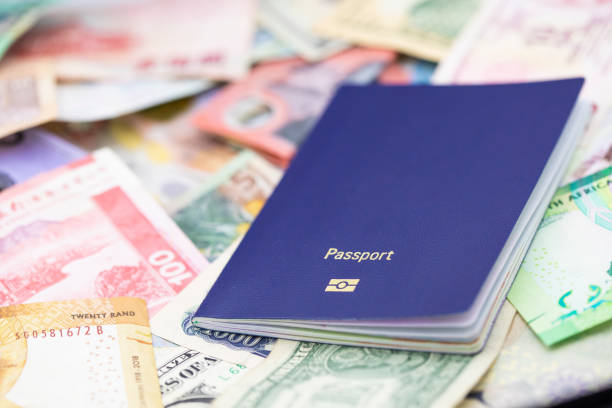The vision of establishing a business in the dynamic market of Dubai Mainland is both enticing and promising for entrepreneurs worldwide. Known for its strategic location, diverse economy, and supportive infrastructure for business growth, the city offers lucrative opportunities for a wide range of enterprises. Company formation in Dubai is a subject surrounded by excitement and inquiries, predicated on the region’s reputation for wealth and development. For those looking to navigate the intricacies of starting a business in this hub, our guide provides a critical foundation to understand the initial steps, legal requirements, and the benefits of setting up shop in Dubai. In this article, we’ll walk through the fundamental aspects of company formation in Dubai Mainland, ensuring you’re well-equipped to make informed decisions for your business venture.
Understanding Dubai Mainland and Its Business Opportunities
Dubai Mainland is the geographical area that falls under the jurisdiction and commercial laws of the Emirati government. It’s an area distinct from the city’s various Free Zones, each having their own sets of regulations and tax structures. Company formation in Dubai Mainland offers businesses the freedom to operate anywhere within the UAE’s vibrant markets and beyond. This is a significant advantage for companies looking to engage directly with the broader UAE economy. From retail and trading to services and manufacturing, Dubai’s Mainland boasts a diverse commercial environment ripe with potential.
The Legal Framework of Dubai Mainland Company Formation
The Department of Economic Development (DED) serves as the cornerstone for controlling and organizing the process of company formation in Dubai. With its comprehensive set of rules and regulations, the DED ensures that businesses operate efficiently and within the legal framework of the UAE. Entrepreneurs must choose from various legal forms when setting up their business entities, such as Sole Proprietorship, Limited Liability Company (LLC), or partnership structures. Particularly for foreign investors, understanding the significance of local sponsorships, wherein UAE nationals hold a majority stake in the company, is crucial for successfully navigating the legal landscape.
Step-by-Step Guide to Registering Your Company in Dubai Mainland
Registering a company in Dubai Mainland involves several crucial steps. Following this step-by-step guide can help streamline the process and ensure compliance with local regulations:
- Choose a Business Activity: Select a business activity that complies with the UAE’s legal frameworks and aligns with your business goals.
- Decide on a Legal Form: Choose an appropriate legal form for your business based on your ownership, business type, and operational scope.
- Find a Local Sponsor: For most mainland businesses, a local Emirati sponsor who will hold a minimum of 51% of the shares is required.
- Register a Trading Name: Choose and register a unique trading name that complies with the regulations set by the Dubai Economic Department (DED).
- Apply for Initial Approval: Obtain an initial approval certificate from DED, confirming no objection to starting the business.
- Prepare MOA and Other Documents: Draft a Memorandum of Association (MOA) and gather all required documentation, including approvals from various government bodies, if necessary.
- Finalize Office Location: Secure an office location as proof of a business address must be provided to complete registration.
- Submit Application and Pay Fees: Submit the final application along with the MOA, the lease agreement, and other required documents to the DED and pay the associated fees.
- Collect Your Business License: Once approved, collect your business license from DED and begin your business operations.

Post-Registration Tasks: Taking Your Company Live
Once the trade license is secured, several post-registration tasks await fruition. Opening corporate bank accounts and arranging the visa applications for any employees you plan to relocate or hire locally are of key importance. Additionally, establishing a physical presence through office space and setting up essential infrastructure are the final steps that bring your company into full operation within Dubai Mainland.
The Financial Aspects of Running a Dubai Mainland Company
Operating a business in Dubai Mainland involves understanding and adhering to the financial obligations set out by the authorities. While there is a favorable tax environment, with no income or corporate tax, it’s critical to maintain compliant with accounting and auditing practices. A well-structured budget is essential, taking into account the various costs associated with company formation, office rental, sponsor fees, and employee visas.
Leveraging Local Expertise and Resources
To successfully establish a company in Dubai, leveraging local expertise and resources is essential. This strategic approach not only simplifies the setup process but also ensures compliance with local regulations and cultural norms. Below is a table highlighting key local resources that can significantly aid in the company formation process.
| Resource | Description | Benefits |
|---|---|---|
| Business Consultants | Experts in local business laws, regulations, and market dynamics. | Guidance through legal procedures, identification of suitable business activities, and strategic planning. |
| Legal Advisors | Specialists in UAE corporate law, labor laws, and contract laws. | Ensuring legal compliance, drafting contracts, and navigating the complexities of local regulations. |
| Real Estate Agencies | Provide access to suitable office spaces and commercial properties. | Assistance in finding the most strategic locations based on business needs and budget. |
| Recruitment Agencies | Offer access to a skilled and diverse workforce. | Help with hiring qualified local and international talents necessary for business operations. |
| Government Liaison Officers (PRO services) | Facilitate interactions with government departments for licenses and approvals. | Speed up government transactions and minimize paperwork, leading to a faster setup time. |

Conclusion
In summary, company formation in Dubai Mainland is an exciting and potentially rewarding endeavor that requires careful planning and an understanding of the local environment. By following the insights provided in this guide and taking advantage of the available resources, entrepreneurs can navigate the process with confidence and place their business on a trajectory for success within Dubai’s booming economy.
FAQs About Company Formation in Dubai Mainland
To further demystify the process of establishing a business in Dubai Mainland, here are answers to some common questions.
- Q1: What is the difference between a Free Zone and Dubai Mainland company?
- A1: A Free Zone company is set up in a special economic zone with its own regulations and is often geared toward specific industries. In contrast, a Dubai Mainland company operates under UAE business laws and can conduct business anywhere within the UAE including local markets.
- Q2: Do I need a local sponsor to form a company in Dubai Mainland?
- A2: Yes, foreign investors usually require a local sponsor who will hold a 51% stake in the company. However, there are certain activities and company structures that may not require local sponsorship.
- Q3: How long does it take to set up a company in Dubai Mainland?
- A3: The duration can vary, but typically, the process takes from 1 to 4 weeks, provided all documentation is complete and correctly submitted.
- Q4: Can I own 100% of my business in Dubai Mainland?
- A4: Certain professional, artisan, and freelance activities may allow for 100% foreign ownership. However, most commercial and industrial activities require a UAE national as a sponsor with at least 51% ownership.
- Q5: What are the ongoing compliance requirements for a Dubai Mainland company?
- A5: Companies must renew their trade licenses annually, maintain proper accounting records, and undergo yearly audits. They should also stay updated with UAE labor laws and visa regulations if they have employees.



